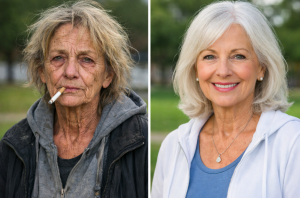Two years ago, I read a book ‘What I talk about when I talk about running‘ by Haruki Murakami.
Different people have different tastes and different perceptions on other peoples’ experiences but many core values always remain the same.
That’s the reason all 8 billion people on the planet have unique experiences to live and share with the world.
Many times each author expresses his or her emotional, intellectual, and physical experiences in their writing.
Haruki’s book is one of the best books I have ever read where he portrays his life sincerely as a writer and a runner.
I rarely reread the book but this Haruki’s 175 page book is one of them.
Though this book is based on his running life, the nuggets in the book are extremely valuable in different facets of our normal life.
One such nugget, my personal favorite, is: “the most important thing we learn at school is the fact that the most important things can’t be learned at school.” It’s so true, many important things in life are learned only by doing, experimenting, and realizing that I made the mistake.
Richard Branson, billionaire investor and author of ‘Losing My Virginity‘ says “You don’t learn to walk by following rules. You learn by doing, and by falling over”
“Haruki Murakami: After passing the marathon finish line he says to himself, ‘I’m not a human, I’m a piece of machinery’.”
‘What I Talk About When I Talk About Running‘ is a memoir that reminds us many times that we, humans, are limitless in life.
The author Murakami is a tremendous human being, a novelist, and later turned into an unstoppable long distance runner.
He’s run dozens of marathons in many places around the world including ultramarathons.
He started his running at age 33, which is already a huge inspiration to all of us.
At this age many other people, especially in sport activities, generally start to think about retiring.
I remember from the book, at one time he was running an ultramarathon in Japan, thinking about 62 miles to finish which he was running for the first time in his life.
In the middle of the ultramarathon, he passes the finish line of the marathon, 26.2 miles, and he reads the words on the side of the hoarding board.
The hoarding board says, “this is the finish line of a marathon.”
This was the first time Haruki was running beyond a marathon finish line in his life continuously without stopping so that he was expressing his unique experience of post marathon run.
After passing the marathon finish line he says to himself, “I’m not a human, I’m a piece of machinery.”
He was running to finish 62 miles but he kept saying the same words again and again, “I’m not a human, I’m a piece of machinery.”
He finished 62 miles comfortably.
As we all know, any machine, which is non living thing, doesn’t bear any pain but produces only beautiful products. But, the thing is Murakami machine produces only beautiful experiences.
“To make our pain beautiful, we have to follow the rule: ‘be yourself’. It means be far from the flow, be far from competition, be far from comparison, and be far from rejection.”
After absorbing Murakami’s life in many pages, I realized there are many things that are inevitable in life but pain and suffering is our personal choice.
He talks about forced pain and desired pain in our lives.
Forced pain is something different and in many circumstances not beneficial at all. But, desired pain is amazing, it is indeed a real pain but makes us happier once we start to love the process of pain.
Marathon running can never be a forced task, it can only be an individual’s desired task.
Not many people can run a marathon, only very few selected people can run.
And running a marathon multiple times is unthinkable for many ordinary people.
It’s not only strong will power that is required for marathon running, it’s the love of the running process that makes marathon aesthetic.
Once we know how to release the pain from the body, the void appears inside us and is very beautiful, that’s what Murakami says life is all about.
There is so much physical and mental pain to finish a marathon but once we pass the finish line, there remains only joy, pure joy.
No words how to express the feeling.
There is only joy, nothing more.
Murakami, the author of ‘Norwegian Wood‘ a classic realistic novel, said, “The only thing that comes to mind after finishing a marathon is how I can run better next time.”
The mind becomes more repetitive, more patient, and a lot more disciplined.
Think about this, if this becomes habitual in life then where do we find the pain?
Another runner, Phil Knight, founder of NIKE, author of ‘Shoe Dog‘, was also famous in track running, though he was a middle distance runner, he used to run 7 miles every morning from his work to home in his early life.
Phil Knight also says that runners have no destination, their destination is their path where they are running.
Phil Knight started running at a time when people used to tag ‘weirdos’ for them.
It wasn’t a socially accepted athletic activity then.
Murakami and Knight both agree that to make pain beautiful, we have to follow the rule: “be yourself.”
‘Be yourself’ means be far from the flow, be far from competition, be far from comparison, and be far from rejection.
Murakami had a decent restaurant bar business before giving up everything to become a professional writer and professional runner.
“When we run marathon, we pass objects, pedestrians, trees, and many other things, these passing things make us a living and non living connection so that pain dissipates from our body to the ground.”
Phil Knight revolted to his family, especially to his dad and visited dozens of countries around the world before giving up his father’s decent media business.
When he was visiting Japan for his shoe business concept his mother dropped him off at the airport and wished him saying ‘be yourself.’
The Bhagavad Gita, a Hindu scripture, also says “when we become our own uniqueness, as the slogan ‘be yourself’; pain and suffering no longer bothers us, it only becomes the motivation for the final destination.”
Amelia Boone, known as “The Queen of Pain,” a decorated obstacle racer, one of our all time hero says, “I’m not the strongest. I’m not the fastest. But I’m really good at suffering.”
If we cherish suffering, life becomes marvelous.
Learn how to cherish the suffering.
Kudos to Murakami, Knight, and Boone!!!
In my own personal experience, as I also run quite often, people who love running and run regularly have keen attachment to a few things.
In reality, nature has given us two amazing feet to move our body, in that sense we all are actually born to run whether we run or not.
In addition, when we run we also become so grateful to our feet that our pain of running turns into a beautiful life observation.
When we run we become grateful to natural scenery so that our pain turns into a beautiful nature experience.
Moreover, when we run we become grateful to our healthy body and healthy mind so that our pain turns into a beautiful communication network through toe to head.
When we run marathon, we pass objects, pedestrians, trees, and many other things, these passing things make us a living and non living connection so that pain dissipates from our body to the ground.
This may be the reason there is a saying that if we run a marathon in our lifetime, we will never die from a heart attack.
I’m not sure whether it’s true or not scientifically but it definitely has some validity. Whatever the meaning of marathon pain, this pain is emotional, beautiful, and fulfilling.
“Mother to son: ‘I gave you birth, you are my everything now in this life, if I don’t trust you then who do I trust’?”
Many years ago, I had a friend from India, he was a graduate student in computer science.
One evening many of his close friends gave him a birthday party in his apartment, it was his 31st birthday.
I also attended his birthday party.
Few friends offered him different kinds of alcoholic drinks so he drank quite a few mixed drinks.
He was fine at the time when we all left his apartment around midnight, he greeted all of us good night.
The next morning his mom was coming to see him all the way from Bangalore, India.
He was excited to pick her up at the airport, he was constantly checking the flight time to make sure her flight was on time so he also set an alarm clock to remind himself that he doesn’t oversleep.
His diabetic mom was travelling alone because his dad expired 3 years ago due to a chronic kidney disease.
She could barely read in Hindi, an indian language, she couldn’t speak English, she couldn’t make telephone calls by herself.
After arriving at the airport at 8am in the morning, she took help from airport people and called multiple times on her son’s cell phone.
Her son didn’t pick up the call.
Due to a mixed alcohol hangover and probably by an alcohol reaction, he wasn’t fully conscious at around 8 am.
He woke up only at 11 am.
Though he knew the night before that he had to go to the airport to pick his mom in the morning at 8 am.
He saw more than 50 missed calls on his cell phone within 3 hours period from 8 am to 11 am.
He was very sad but anyway he drove towards the airport.
He was devastated at this point not by anything but by his own irresponsible behavior.
He told me, “he had so much pain in his body, he was shivering due to pain thinking about his diabetic mom.”
He said, “his mouth was dry, his headache was moving all around his head.”
He had a panic attack, his body pain was so severe that he pulled over on the side of the road for a couple of minutes.
He drank water because his body was dehydrated due to excess alcohol and he also washed his face with cold water.
Finally after 45 minutes driving he reached the luggage claim area at the airport, he saw his mom laying down on the bench.
He sighed, his eyes became teared.
He walked closer to his mom, he saw his mom’s face from a little close distance, he reached to his mom but couldn’t speak, mom also didn’t say anything, she only smiled.
Once he saw his mom on the bench at the airport and when she smiled, he said to himself, “Why is this pain so beautiful?”
Few minutes ago, his body pain was excruciating, his headache was moving all over his head but once he saw his mom’s smile everything became clear, he had not even an ounce of pain in his body and in his head.
He only experienced beauty and love, the whole pain is gone.
Once he approached his mom, he bent down, he touched her feet, and started to cry.
He sat flat on the bare floor at the airport and broke down, he couldn’t control crying.
His mom didn’t ask any questions, she wrapped his head around her arms, she didn’t ask why he didn’t pick up the phone, she didn’t ask why he was late, she didn’t ask what happened?
Finally, he drove his mom to his apartment.
When they reached the apartment, he asked his mom, “‘Maa, can I tell you something?” ‘Maa’ means mom in indian language.
His mom replied, “sure, beta.” ‘Beta’ means son in indian language.
He touched her feet one more time and said, “Maa, I promise you I would never ever drink alcohol in my whole life from today onwards.”
His mom replied, “beta, I’m 62 years old now, I’m illiterate, the only degree I have in this life is trust. I trusted your dad and lived the fullest life when he was alive. I gave you birth, you are my everything now in this life, if I don’t trust you then who do I trust?”
Both mom and son smiled with teary eyes and entered the kitchen, but both mom and son were suffering from empathetic pain, it was beautiful, gratifying, and delightful.
Yam Timsina, PhD, writes primarily on health basics, scientific progress, social upliftment, and value creation.
Disclaimer: “Please note that some links in this post are affiliate links, which means I may receive a small commission if you make a purchase through them, at no extra cost to you.”





